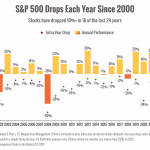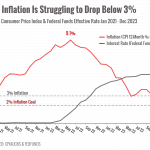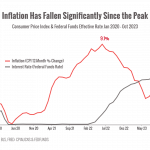Ponzi Schemes? Look No Further Than Your Backyard!
 A Ponzi scheme is a fraudulent investment operation that pays returns to its investors from their own money or the money paid by subsequent investors, rather than from any actual profit earned by the individual or organization running the operation. The scheme is named after Charles Ponzi, who became notorious for using the technique in 1920 (see photo).
A Ponzi scheme is a fraudulent investment operation that pays returns to its investors from their own money or the money paid by subsequent investors, rather than from any actual profit earned by the individual or organization running the operation. The scheme is named after Charles Ponzi, who became notorious for using the technique in 1920 (see photo).
People often don’t realize Ponzi schemes happen everywhere and all the time. Take for instance Bruce Kramer and his company Barki, LLC based in Mint Hill, North Carolina. This small town is just outside of Charlotte, NC and not far from the headquarters of our firm, NorthStar Capital Advisors. The Charlotte Observer broke the story on May 29, 2009:
In January, with the economy tanking and Bernard Madoff’s $65 billion scam unraveling, Bruce Kramer met a nervous investor for lunch at Hawthorne’s pizzeria in Mint Hill.
The investor, a Charlotte consultant who had invested several hundred thousand dollars with Kramer’s foreign currency exchange firm in Cabarrus County, wondered if the money was safe. Kramer reassured him it was, recalled the investor, who asked not to be identified to protect his family.
Kramer then thanked him for lunch and drove off in a new $90,000 Maserati.
A month later, Kramer shot and killed himself. Court documents allege he swindled $40 million from 80 clients and spent much of it on luxury cars, a racehorse, art and extravagant parties.
The U.S. District Court ultimately issued a default judgment against the late Bruce Kramer and his company ordering more than $40 million in fines and restitution.
How to spot a Ponzi Scheme
According to the SEC, many Ponzi schemes share common characteristics. Look for these warning signs:
- High returns with little or no risk. Every investment carries some degree of risk, and investments yielding higher returns typically involve more risk. Be highly suspicious of any “guaranteed” investment opportunity.
- Overly consistent returns. Investments tend to go up and down over time. Be skeptical about an investment that regularly generates positive returns regardless of overall market conditions.
- Unregistered investments. Ponzi schemes typically involve investments that are not registered with the SEC or with state regulators. Registration is important because it provides investors with access to information about the company’s management, products, services, and finances.
- Unlicensed sellers. Federal and state securities laws require investment professionals and firms to be licensed or registered. Most Ponzi schemes involve unlicensed individuals or unregistered firms.
- Secretive, complex strategies. Avoid investments if you don’t understand them or can’t get complete information about them.
- Issues with paperwork. Account statement errors may be a sign that funds are not being invested as promised.
- Difficulty receiving payments. Be suspicious if you don’t receive a payment or have difficulty cashing out. Ponzi scheme promoters sometimes try to prevent participants from cashing out by offering even higher returns for staying put.







